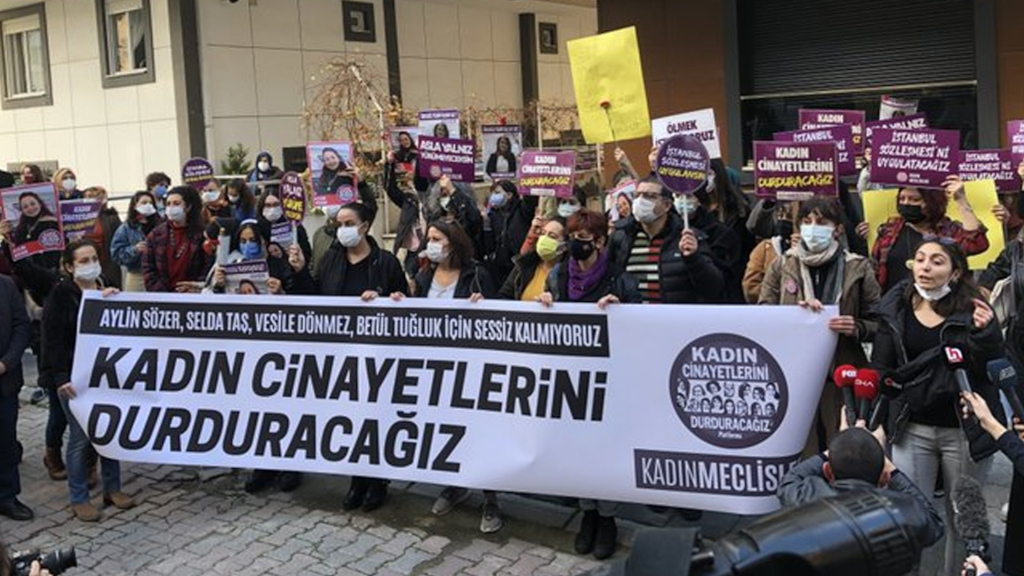The legal process recently started by Turkish authorities to close down women’s rights organization the We Will Stop Femicide Platform (Kadın Cinayetlerini Durduracağız Platformu) is based on a complaint filed by a provincial branch member of the ruling Justice and Development Party (AKP), local media reported on Friday, citing a journalist.
Journalist İsmail Saymaz on Friday said in his column on the Halk TV news website that the complaint that served as the basis for the legal proceedings to close down the platform was filed by Ahmet Eliaçık, a member of the Kayseri provincial branch of the AKP who was jailed for two days in 2016 for failure to pay alimony in the amount of TL 300 ($20.50).
Eliaçık, who was released from jail after the alimony was paid by the AKP’s Kayseri branch, submitted his complaint to the Provincial Associations Directorate of the İstanbul Governor’s Office, which is responsible for nongovernmental organizations, Saymaz said.
According to the journalist, the governor’s office took seriously the “nonsense” complaint accusing the women’s rights organization of “operating outside of its purpose” and “becoming illegal and immoral” and sent it to İstanbul Chief Public Prosecutor’s Office in March 2018, demanding the closure of the platform.
The prosecutor’s office could make no sense of the demand at first since there was no evidence regarding the accusations faced by the platform other than Eliaçık’s complaint, an anonymous petition and several social media posts, Saymaz said, adding that the office then requested they send another closure demand based on “concrete events and facts.”
Following three such requests, the governor’s office replied to the prosecutor in June 2021, saying, based on data from the İstanbul Police Department, that 10 of the platform’s executives had previously faced trial on various charges and that that should serve as concrete evidence, according to Saymaz.
Following the reply, the closure case was launched at the İstanbul 13th Civil Court of First Instance on Dec. 2, 2021, with the prosecutor accusing the women’s rights organization, among other things, of “illegal and immoral activities” and “damaging the Turkish family structure,” with reference to Eliaçık’s complaint.
Turkish civil society organizations have faced increasing political pressure in recent years. Turkey’s parliament approved a law that would increase government monitoring of civil society groups in December 2020.
Newly introduced articles on associations and foundations, included in the bill on “Preventing Financing of Proliferation of Weapons of Mass Destruction,” allow the annual inspection of nongovernmental organizations, ostensibly to combat terrorism financing.
However, Turkey’s anti-terrorism laws are broad and have led to the jailing of politicians, journalists, civil society activists and thousands of others.
Nearly 680 civil society groups signed a declaration against the bill, saying it would limit their ability to raise funds and organize while putting them under pressure from the Interior Ministry. They said the law violates the Turkish Constitution, which guarantees freedom of association.



